February 21, 2012
Edited by David Sanders
Specimen Days
February 21, 2012
1595 – Robert Southwell, English Jesuit/poet, is hanged.
1710 – Willem van Haren, Frisian nobleman/poet (Human Life), is born.
1817 – Jose Zorrilla y Moral, Vallodolid Spain, poet/dramatist (El rey Loco), is born.
1862 – Justinus A C Kerner, German family doctor/poet/writer, dies at 75.
1877 – Jacob D du Toit [Totius], South African poet/theologist, is born.
1904 – Armand Preud’homme, Flemish organist/poet, is born.
1907 – Wystan Hugh Auden is born.
1926 – Hans Andreus, [Johan W van der Zant], Dutch poet (Animal Language), is born.
1944 – Herman de Coninck, Flemish writer/poet (Impossible Work), is born.
1961 – Blaise Cendrars, [Frederic Sauser-Hall], Switz, poet, dies at 73.
2005 – Gérard Bessette, Quebec novelist and poet, dies.
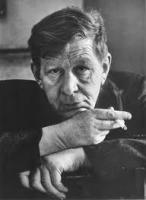 He was my North, my South, my East and West,
He was my North, my South, my East and West,
My working week and my Sunday rest,
My noon, my midnight, my talk, my song;
I thought that love would last for ever: I was wrong.
The stars are not wanted now: put out every one;
Pack up the moon and dismantle the sun;
Pour away the ocean and sweep up the wood.
For nothing now can ever come to any good.
—W. H. Auden (1907–1973), from “Stop all the clocks, cut off the telephone”
Poetry In The News
Vermont Man Denies Theft of Robert Frost Writings
A Vermont thrift store employee pleaded not guilty on Monday to stealing letters and holiday cards written by the poet Robert Frost and selling them for $20,000, police said. Timothy Bernaby was arraigned on grand larceny charges in White River Junction, Vermont, about 100 miles north of Frost’s grave in Bennington, Vermont, which is marked with the epitaph “I had a lover’s quarrel with the world.” Read more at Reuters.
Love Letters Digitized: The ‘Triumphant Happiness’ of Elizabeth Barrett and Robert Browning
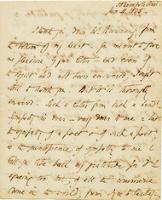 Wellesley College and Baylor University collaborated on the project, which began today with more than 1,400 letters by the poets available online. Of those, 573 represent the complete set of love letters, and at least 1,500 additional pieces of correspondence to other people the couple knew are to be up by summer. Read more at the New York Times.
Wellesley College and Baylor University collaborated on the project, which began today with more than 1,400 letters by the poets available online. Of those, 573 represent the complete set of love letters, and at least 1,500 additional pieces of correspondence to other people the couple knew are to be up by summer. Read more at the New York Times.
Poet Returns to Berkeley for Rare Reading
Andy Clausen discovered the Beats, then the Beats discovered Andy Clausen. Berkeley 1968 — Clausen was a fixture at poetry readings at Shakespeare & Company on Telegraph Avenue and other places, firing volley after volley of verse. Among those listening was Allen Ginsberg. “Andy Clausen’s character voice is heroic, a vox populi of the democratic unconscious, a ‘divine average’ thinking workman persona,” Ginsberg would later write. “As ‘one of the rough,’ a Whitmanic laborer, precisely a union hodcarrier long-standing, his bardic populism’s grounded on long years’ painful sturdy experience earning family bread by the sweat of his brow.” Read more at the Oakland Tribune.
World Poetry
Forgiveness, Not Death, for Hamza Kashgari
Ireland’s “unofficial” poet laureate, Paul Durcan, has leapt to the defence of President and fellow poet Michael D Higgins. “He has an absolute commitment to the spirit of poetry, which is inseperable from his worldly outlook, and his political outlook, with its origins in a vision of radical socialism and the dignity of the human spirit. “Many of us, as poets, have been trying for 45 years to achieve this quality, but he has had it from the start,” said Durcan yesterday in the wake of critic Professor Kevin Kiely calling the President’s recent volume of verses “a crime against literature”. Read more at the Independent.
Italian Poet Macario Now a Giriama Elder
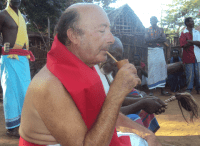 A famous Italian poet was yesterday initiated into the Giriama community after staying in the resort town for only three months. Mauro Macario, 65, was initiated in colorful ceremony organised by Kaya elders at the Malindi District Cultural Association Secretariat and given the name ‘Mukweha Lewa’ from the Amwamkweha community a sub-tribe of the Giriama. He will now become part of the Giriama community and is expected to visit the Kaya to learn more about the culture and tradition of his sub-tribe whenever he visits Kenya. Read more at The Star.
A famous Italian poet was yesterday initiated into the Giriama community after staying in the resort town for only three months. Mauro Macario, 65, was initiated in colorful ceremony organised by Kaya elders at the Malindi District Cultural Association Secretariat and given the name ‘Mukweha Lewa’ from the Amwamkweha community a sub-tribe of the Giriama. He will now become part of the Giriama community and is expected to visit the Kaya to learn more about the culture and tradition of his sub-tribe whenever he visits Kenya. Read more at The Star.
New Books
Phyla of Joy: Poems by Karen An-hwei Lee
[Paperback] Tupelo Press, 76 pp., $16.95
There’s an undeniable audacity in a poet using the word “joy” in our modern world. In her new book, Karen An-hwei Lee combines scientific precision and an appetite for far-flung vocabularies with a fascination for the sources of rapturous emotion. In poems that roam from the intimacy of prayer to the art of brewing tea, from bamboo-related famine to quasars, the globe’s minor seas, and the nuptial flight of ants, Phyla of Joy reaches toward ecstasy.
Fowling Piece: Poems by Heidy Steidlmayer
[Paperback] Triquarterly, 80 pp., $16.95
A remarkably mature first collection of poems, Heidy Steidlmayer’s Fowling Piece is the debut of a highly original voice. As they search for meaning in both the extraordinary and the everyday, these poems, in exquisitely compressed language, display a fierce attention to the history of individual words and a surprising wit. In Steidlmayer’s poetic landscape, words strike the reader as at once familiar and exotic, becoming instruments through which she is able to access and make sense of the most profound, irreducible aspects of human experience. Her mastery of and experiments in form are exceptional for a poet of any age. Fowling Piece offers the rare gift of a new poet whose work is truly new.
Paper Lanterns by Gerry Sloan
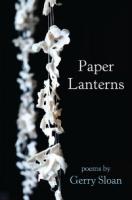 [Paperback] Half Acre Press, 122 pp., $16.00
[Paperback] Half Acre Press, 122 pp., $16.00
Gerry Sloan’s poetry “orchestrates a life of observation and attention, of figurative ideas captured in verse, and of love for the things of this world. It is divided into suites linked thematically and delicately by family, politics, history, music, love, and loss. ‘I think about the crazy / creatures we’ve become- / our constant contradictions, / predilection for metaphor- / towns named after conditions / for the lives we share and are.’ Gerry Sloan’s command of metaphor, tone, and rhythm together with his keen eye for the contradictions of everyday life make for a powerful volume.”
Looking for The Gulf Motel by Richard Blanco
[Paperback] University of Pittsburgh Press, 80 pp., $15.95
“W. H. Auden, asked to define poetry from the other written arts, wrote that poetry was ‘memorable speech.’ Richard Blanco’s speech invites the reader in with its search for home. His lyrics open doors onto his Cuban immigrant family, his father’s early death, and his own migration from a life in Florida to a life in Maine. His speech houses a generous love of others and a persistent reach for what is absent. There is nothing here you will not remember.”
—Spencer Reece
Recent Reviews
A Difficult Poet
by Bill Coyle
For the many critics who have regarded Hill’s work since The Triumph of Love (1998) as a descent into grouchy obscurantism, Clavics will read like one more stage in a great poet’s decline. My own baffled incomprehension when faced with the work at hand is a slightly different case. While I’ve found none of Hill’s later works easy, I do think that a reasonably open-minded reader (particularly one sympathetic to high modernist literature) can find much value in them. The critical consensus has rightly regarded Speech! Speech! (2000) as Hill’s most rebarbative and difficult work up until this point, but even in that book, there are passages of great descriptive beauty as well as a spiky rhetorical power. Read more at the Oxonian Review.
Where We Might Have Been by Don Coles
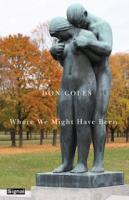 by David Godkin
by David Godkin
My look at Don Coles’ latest begins with his obvious strengths – his narrative structures and casual style – noting that what most readers find enjoyable about Coles’ poetry is largely inseparable from matters of tone. The conversational tone or mode of address is the fulcrum from which Cole leverages whatever interest is found in the episodic narratives that represent the bulk of this book’s structure. In fact, many of the formal features that ordinarily support our enjoyment of poetry such as rhythm and imagery are overshadowed by our experience of Coles’ voice and tone. Read more at Speaking of Poems.
Orchards by Rainer Maria Rilke
by Delphine Grass
Vergers is arguably the most famous of Rilke’s poetry collections written in French. The title itself holds special importance in Rilke’s poetic venture. It was this word that stirred his first impulse to write in the French language while residing in Veyras, Switzerland. Although they are often referred to as Rilke’s ‘simpler’ poems, one could turn the criticism on its head and argue that the merit of Orchards lies instead in reinstating the simplicity of words within the complicated syntax of language. Put differently, Rilke took full advantage of being able to look at French with a fresh pair of eyes. It is by keeping this in mind that one might realise that the poems are far from unsophisticated, as Peter Oram and Alex Barr’s translation testifies. Read more at Modern Poetry in Translation.
Correspondences
Push the Poem: An Interview with Martha Collins
 by Michael Simms
by Michael Simms
Martha Collins is the author of several poetry collections, including White Papers recently released from the University of Pittsburgh Press and the book-length poem Blue Front, winner of the Anisfield-Wolf Book Award and chosen as one of “25 Books to Remember from 2006” by the New York Public Library. Her other awards include fellowships from the NEA, the Bunting Institute, the Ingram Merrill Foundation, and the Witter Bynner Foundation. She is also the recipient of three Pushcart Prizes, the Alice Fay Di Castagnola Award, and a Lannan residency grant. Collins founded the Creative Writing Program at UMass-Boston and for ten years was Pauline Delaney Professor of Creative Writing at Oberlin College. She is currently editor-at-large for FIELD magazine and an editor for Oberlin College Press. Read more at Coal Hill Review.
Unspoken History: An Interview with Finnish Poet Tommi Parkko
by Joshua Barnes
Finnish poet and essayist Tommi Parkko has taught creative writing at universities and workshops across Finland. He is the founder of the poetry association Nihil Interit, and has edited a number of poetry collections. His own work has been translated into English, Swedish, Russian, Estonian, Hebrew, and Lithuanian and he is the author of three poetry collections. In September, 2011 Parkko came to Pittsburgh to read at City of Asylum’s annual Jazz/Poetry concert, where he shared the stage with international poets Alexandra Petrova, Hind Shoufani, Khet Mar, Israel Centeno, and Sonia Sanchez. The poems that Parkko read were accompanied by the sounds of Oliver Lake and Tarbaby. While he was in Pittsburgh, however, Parkko and I talked about his modernist tendencies, the difficulties of writing long-form poems in the post-post-modern age, and how mythology helps him get in touch with the “unspoken mental history” of a society. Read more at Sampsonian Way.
Broadsides
21 Dos and Don’ts for an AWP Newbie
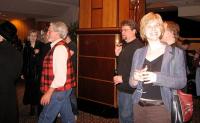 by Carolyn Kellogg
by Carolyn Kellogg
It’s a conference that welcomes professors and graduate students, and undergraduates too, to gather and talk about writing — teaching writing, studying writing and, in the best of cases, publishing writing. Like any conference, AWP can be anxiety-making. When I first went in 2007, I was an MFA student, the only one from my program to attend. The swarm of strangers was mediated by some Internet friends, who took me under their collective wing. I came to understand that the conference can be easily navigated, if only you know what you’re doing. Read more at Jacket Copy.
Craigslist Poetry: Really Specific
by Paul Bowers
Like good horoscopes, some of the posts on Craigslist’s Missed Connections board are vague enough to be applicable to nearly anyone: “I think there’s a spark when we see each other at work, but I don’t know if I’m misreading the vibe,” for instance, or “Saw you in the cereal aisle, but I was afraid you’d tell me to get a Life if I asked you to be my Honey Bunches.” But then there are a few entries that are so full of specific references and inside jokes, they would only make sense to their intended recipient. Read more at the Charleston City Paper.
On Getting Paid: Literary Magazines and Remuneration
by Nick Ripatrazone
David Lynn began his Editor’s Notes for the Autumn 2004 issue of The Kenyon Review with some necessary questions: “How much is a fine story worth? What monetary value does a superb poem possess? How much — and this is the inexorable point — should authors be paid for their long, solitary work?” The questions were particularly appropriate to his magazine: The Kenyon Reviewpublished writers such as Thomas Pynchon, Flannery O’Connor, Robert Penn Warren, and yet the magazine closed in 1969, and was not revived until a decade later. Lynn assumed the editorship in 1994, and the magazine “struggl[ed] toward financial stability,” only paying contributors “fifteen dollars per page for poetry and ten dollars per page for prose.” Read more at The Millions.
Drafts & Fragments
Livelihoods of the Poets
Estimated number of poems considered by editors of The Best American Poetry yearly anthology: 20,000; number selected: 75
Read more at New York Magazine.
New Poetry App from Columbia University Press
A new iOS and Android app for all poetry lovers from the Columbia University Press. The Columbia Granger’s World of Poetry is a leading web and print resource for anyone with an interest in the world of poetry. The Granger’s World of Poetry app delivers the Granger’s Poem of the Day and Daily Trivia Question, for people who enjoy staying in touch with their poetic nature. Read more at Teleread.
Envoi: Editor’s Notes
Poetic Propositions: Verse And The Art of Seduction
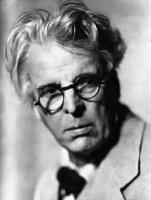 by David Orr
by David Orr
Valentine’s Day is a tricky occasion for poets. Granted, it’s hard not to be pleased with a holiday on which poems are thought to be genuinely useful, in the ordinary sense of the word. As the former Poet Laureate Charles Simic puts it in his introduction to an anthology called Isn’t It Romantic, “Love poetry is the only type of poetry that can be put into practical use” — which is to say, it supposedly results in “spirit becoming flesh; words becoming deeds; the two of you hopping into bed.” Read more at NPR.
Today I listened to a recording of Yeat’s imitation of Ronsard’s best-known poem, “Sonnet pour Hélène” (“Quand vous serez bien vieille. . .”). Guilty as Yeats is of the treason of improvement in this “translation,” I thought how in forty short seconds he was able to capture the spirit of a caught moment, that moment that embodies one person’s true consideration of the relationship with another. More than mere reporting from a country ravaged by the tyranny of appetite, love poetry has as a goal that shift from chronos, time as it exists most often in its minutes and hours and days, to kairos, the ineffeable time out of time, a moment now gone that lasts forever. In that way, it is like all poetry.
—David Sanders